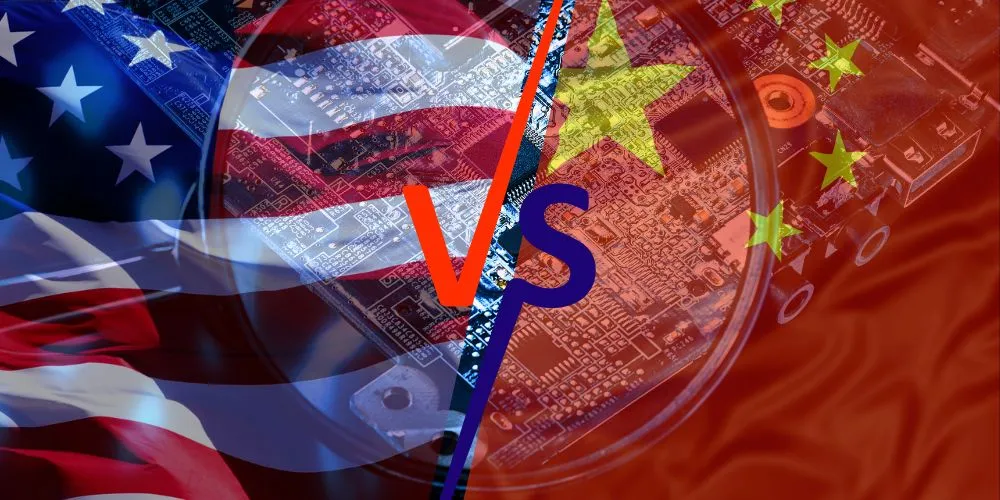Key Points:
- The Biden administration is considering tighter controls on China’s access to advanced chip technology, particularly GAA.
- GAA represents a cutting-edge transistor architecture promising better performance and lower power consumption.
- The U.S. has progressively tightened export controls on advanced chip technology to China since October 2022.
- China has invested heavily in its semiconductor industry to achieve technological self-reliance.
According to a Bloomberg report on Tuesday, the U.S. government is contemplating further restrictions on China’s access to critical chip technology, which is essential for advancements in artificial intelligence (AI). The Biden administration specifically targets a high-tech chip architecture known as gate-all-around (GAA), which promises enhanced performance and lower power consumption.
GAA is a novel transistor architecture that has the potential to revolutionize chip technology. South Korea’s Samsung Electronics has already commenced production of 3-nanometer chips using GAA technology, and Taiwan Semiconductor Manufacturing Company (TSMC) plans to incorporate GAA in its forthcoming 2-nanometer chips. Following this news, shares of TSMC and Samsung Electronics saw increases of 1.6% and 0.4%, respectively, in Wednesday morning trading in Asia.
According to Bloomberg, the U.S. is still “determining the scope of a potential rule,” but it remains unclear when this process will conclude. The proposed measures hinder China’s development of advanced computing systems for constructing and operating AI models. Neither the U.S. Department of Commerce nor the Bureau of Industry and Security, which administers export controls, immediately responded to requests for comment.
Since October 2022, the U.S. has implemented export controls to limit China’s access to advanced chip technology, especially those used in AI applications. These measures were tightened further in October of the following year, restricting the shipment of advanced AI chips from companies like Nvidia to China.
The sources indicated that an initial draft of the potential GAA restrictions was considered “overly broad.” It remains uncertain whether the restrictions will specifically target China’s GAA development or prevent foreign companies from selling GAA technology to China.
In response to increasing international restrictions, China has invested 344 billion yuan ($47.5 billion) into a third semiconductor fund to enhance its self-reliance in science and technology. This move is part of China’s broader strategy to bolster its technological capabilities amidst tightening export controls from countries like the U.S. and the Netherlands.
Earlier this year, the Dutch government imposed restrictions on exporting certain chip-making tools to China by ASML, a leading chip equipment manufacturer. This move aligns with broader efforts by Western countries to curb China’s technological advancements.




